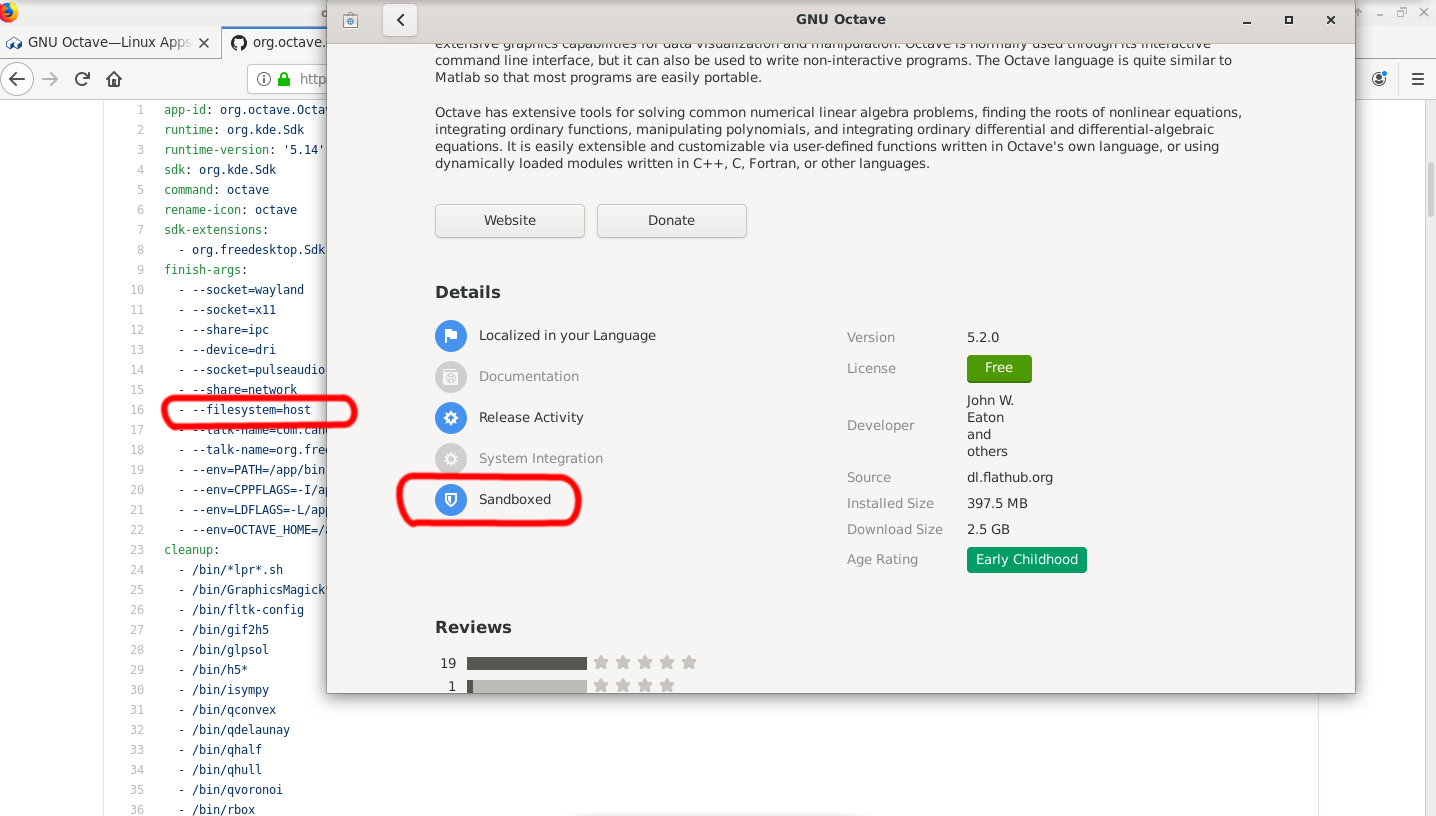Two years ago I wrote about then heavily-pushed Flatpak, self-proclaimed "Future of Apps on Linux". The article criticized the following three major flows in Flatpak:
So let's see how Flatpak developers addressed these fundamental issues.
Almost all popular apps on Flathub still come with filesystem=host or filesystem=home permissions, in other words, write access to the user home directory (and more) so all it takes to escape the sandbox is trivial echo download_and_execute_evil >> ~/.bashrc. That's it.
The most popular applications on Flathub still suffer from this - Gimp, VSCodium, PyCharm, Octave, Inkscape, Audacity, VLC are still not sandboxed.
And, indeed, users are still mislead by the reassuring blue "sandboxed" icon. Two years is not enough to add a warning that an application is not sandboxed if it comes with dangerous permissions (like full access to your home directory)? Seriously?

It took me about 20 minutes to find the first vulnerability in a Flathub application with full host access and I didn't even bother to use a vulnerability scanner.
A perfect example is CVE-2019-17498 with public exploit available for some 8 months. The first app on Flathub I find to use libssh2 library is Gitg and, indeed, it does ship with unpatched libssh2.But is it just this one application? Let's look at the official runtimes at the heart of Flatpak (org.freedesktop.Platform and org.gnome.Platform 3.36 - as of time of writing used by most of the applications on Flathub). The first unpatched vulnerable dependency I found in the offical runtime is ffmpeg in version 4.2.1 with no security patches backported, CVE-2020-12284.
Recently I stumbled upon an article from 2011 which started what is today known as flatpak, in the words of the project founder:
After reading that it comes as no surprise flatpak still suffers from the same security issues as 2 years ago because flatpak developers knew about these problems from the beginning.
Great! Two years ago I wrote about a trivial local root exploit using flatpak to install suid binaries (CVE-2017-9780) and how it was downplayed by Flatpak developers as a minor security issue here. I am happy to see at least the attitude to local root exploits has changed and today local root exploits are considered high severity.
System and user fonts are now available to flatpak applications and basic font rendering settings are respected as well, however do not expect your changes in /etc/fonts, typically setting a proper fallback font for CJK characters, to work with flatpak. KDE applications in flatpak are still ignoring themes, fonts and icon settings (tested with Qt5ct). Applications installed from the distribution sources do not have these problems, of course. A quick screen capture to demonstrate.
More importantly, fcitx, the IME for Chinese is still broken - it has been 2 years. Here is the issue I linked 2 years ago - especially of interest is the following comment directly from fcitx developer:
"Because fcitx im module in flatpak is from 4.2.97 and using a different dbus object path. It need to be the same version of fcitx on your host."
So I need to run multiple fcitx daemons on my desktop and switch between them as I switch flatpak apps depending on which fcitx libraries are bundled with that app or maybe in the future of linux apps it's not possible to type chinese anymore and it's fine?While the "bundle everything" approach has proven very useful on servers it clearly does not work for desktop applications, let's keep linking system libraries in desktop applications (and use the bundled libraries as a fallback only) to avoid introducing all these problems to Linux desktop.